
Latest Coronavirus Disease COVID 19 News and Research
Cloud-based tool can rapidly detect and track emerging pathogens
Published today in the journal GigaScience is a new open source, cloud-based tool called IDseq that makes it possible to rapidly detect, identify, and track emerging pathogens such as SARS-CoV-2.
Electronic cigarettes better than nicotine replacement therapy to help people quit smoking
Electronic cigarettes could increase the number of people who stop smoking compared to nicotine replacement therapy – such as chewing gum and patches – according to research involving the University of East Anglia.
Wearing blue-light glasses before sleeping can improve sleep quantity and quality
During the pandemic, the amount of screen time for many people working and learning from home as well as binge-watching TV has sharply increased. New research finds that wearing blue-light glasses just before sleeping can lead to a better night's sleep and contribute to a better day's work to follow.
GIV protein involved in the immune system could form basis for novel therapeutics
The immune response to infections is a delicate balance. We need just enough action to clear away the offending bacteria or viruses, but not so much that our own bodies suffer collateral damage.
SARS-CoV-2 can infect brain cells and damage neurons
Researchers have found that the severe acute respiratory syndrome coronavirus 2 (SARS-CoV-2) can infect the brain cells, mainly the astrocytes, and negatively affects cognition and neuronal cells.
Digital environmental tools can help track and predict effects of COVID-19
A digital sprint, featuring a series of hackathons, led by Cranfield University and the Natural Environment Research Council has seen multiple projects awarded prizes for innovation and use of digital technology.
Obese persons have greater risk of developing severe COVID-19
The probability that an obese person will develop severe COVID-19 is high regardless of age, sex, ethnicity, and the presence of co-morbidities such as diabetes, high blood pressure, and heart or lung disease, according to a study by Brazilian researchers published in Obesity Research & Clinical Practice.
Capillary blood microsampling could prove a breakthrough in SARS-CoV-2 serosurveillance
As COVID-19 seems to be making a comeback in many areas of the world, including Japan, a new study published on the preprint server medRxiv in October 2020 shows the relevance of microsamples of blood in serosurveillance of this disease.
Higher levels of lymphocytes reduce risk of long-term complications in asymptomatic COVID-19 patients
COVID-19 remains stubbornly inconsistent. More than a million people have died and 35 million have been diagnosed, but a large fraction of people infected with the coronavirus--about 45%, according to recent estimates--show no symptoms at all.
Rapid SARS‐CoV‐2 IgM‐IgG combined antibody test
A recent study published on the preprint server medRxiv in October 2020 reports a new diagnostic test for SARS-CoV-2 based on the detection of antibodies.
Lockdowns improved air quality, averted tens of thousands of deaths in severely polluted regions
Lockdowns initiated to curb the spread of the coronavirus in China and Europe at the beginning of the pandemic improved air quality, averting tens of thousands of deaths in regions where air pollution has a significant impact on mortality, a new study shows.
Human bivalent SARS-CoV-2 neutralizing antibodies more potent
A recent study published on the preprint server bioRxiv in October 2020 reports more effective viral neutralization by bivalent anti-spike antibodies. This could promote the development of better therapeutics and vaccines.
Certain live-attenuated vaccines can prevent severe complications of COVID-19
COVID-19 continues to wreak havoc globally, with over one million deaths to date. Yet what if an existing vaccine could make COVID-19 less deadly? A study just published put the theory to test, with promising results.
Researchers investigate the spread of SARS-CoV-2
Winter is on its way. And in this year of coronavirus, with it comes the potential for a second wave of COVID-19. Add in flu season and our tendency to head inside and close our windows to the cold, wet weather, and it appears the next several months are going to present us with new health challenges.
New saliva tests can enable early detection and diagnosis of COVID-19, head & neck cancer
Summit Biolabs, Inc., an early-stage molecular diagnostics company specializing in saliva-based testing for COVID-19 and head & neck cancer, and the Colorado Center for Personalized Medicine (CCPM) at the University of Colorado Anschutz Medical Campus announced today a broad strategic collaboration involving research, development and commercialization of saliva liquid-biopsy tests for early cancer detection and diagnosis of COVID-19 and other viral contagions.
Study shows how people could reduce pandemic-induced stress
Everybody, it seems, is stressed out to some degree by the coronavirus pandemic. It may be anguish over the sickness or death of a friend or family member. It may be anxiety over a job that has been altered or eliminated. It may be disquiet over the competing demands of work and family while working from home.
Ct values can be used to estimate epidemic dynamics
Researchers recently showed that the varying population distribution of Cycle threshold (Ct) values from positive SARS-CoV-2 samples could help infer epidemic dynamics.
New research looks at the experiences of 'long Covid' sufferers
Some people who experienced a 'mild' infection of Covid-19 are suffering long-lasting symptoms months after contracting the virus,known as 'long Covid'.
Leadership, communication and compliance key to New Zealand's COVID-19 success
Researchers from New Zealand have studied the epidemiological curve of the COVID-19 pandemic in their country. Their study titled "COVID-19 in New Zealand and the impact of the national response: a descriptive epidemiological study" was published on October 13, 2020, in The Lancet Public Health.
The COVID-19 vaccine pipeline
Researchers from Mayo Clinic, United States of America, have reviewed the immunity developed against the severe acute respiratory syndrome coronavirus 2 (SARS-CoV-2) that causes COVID-19 disease.

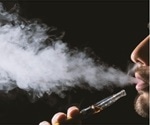

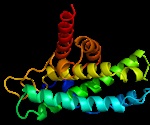
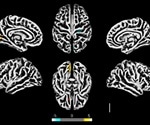
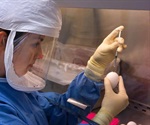
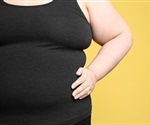
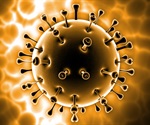
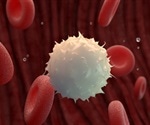
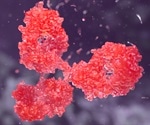

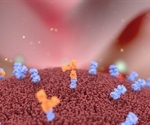
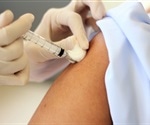

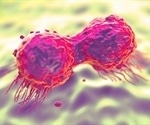

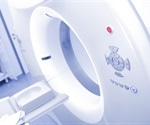


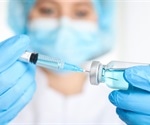
































No hay comentarios:
Publicar un comentario